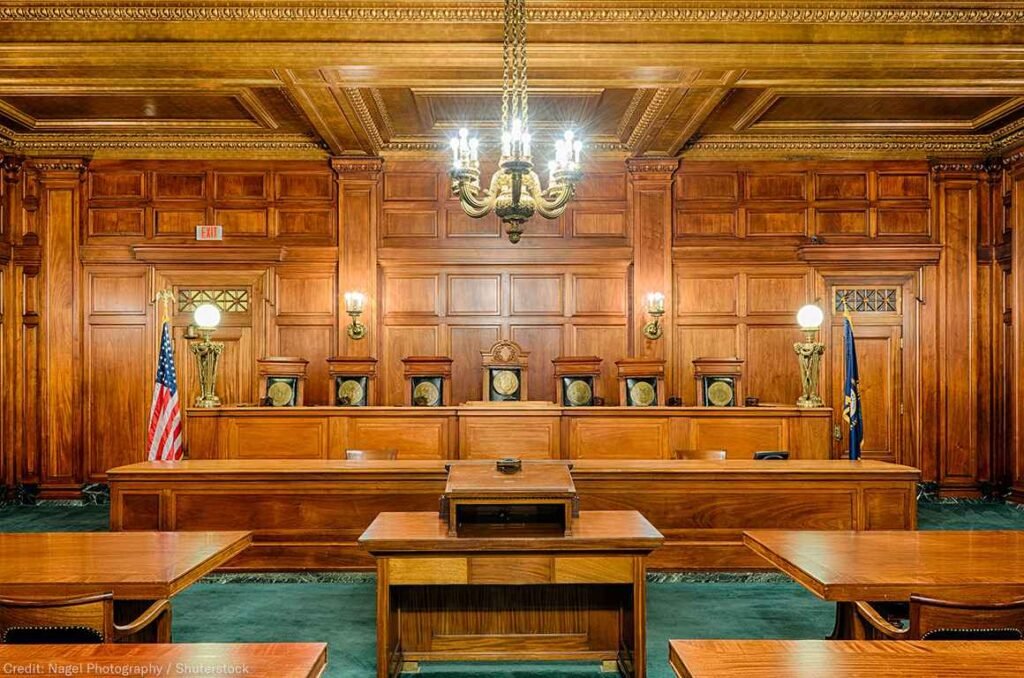The judicial system is a complex construction intended to maintain law and order, keep up with equity, and protect the rights of people. A critical part of this system is the appellate court, frequently alluded to as the court of appeals. For anybody exploring fights in court, understanding the job of appeal courts and how they capability is essential.
Whether you are managing civil, criminal, or sacred cases, appeal courts give a road to reviewing and remedying lawful errors that might have happened during a trial. If you’re thinking about recruiting the best appeal lawyers in Florida, understanding the significance of these courts can be the first step toward getting a great outcome.
What Are Appeal Courts?
Appeal courts, otherwise called appellate courts, will be courts that review the decisions of lower courts, known as trial courts, to guarantee that legitimate standards were accurately applied and that a fair consequence was given. They don’t hold trials or hear new proof however rather center around analyzing the judicial actions of the trial courts to decide whether there were any significant errors in law or procedure.
An appellate court regularly comprises of a board of judges who review the record of the lower court’s proceedings. These judges pay attention to the arguments presented by the two sides through composed briefs and oral arguments. In view of this review, the appeal court can assert, reverse, or modify the lower court’s decision. At times, they might send the case back for another trial if they track down significant issues with the first interaction.
Types of Appeal Courts
There are a few degrees of appeal courts, contingent upon the jurisdiction and the idea of the case. In the US, the appellate court system incorporates the accompanying levels:
- State Courts of Appeal: These courts handle appeals from lower state courts. They center around cases including state laws and are liable for ensuring that the trial courts have accurately deciphered and applied the law.
- Federal Courts of Appeal: These are higher courts that hear appeals from federal locale courts. They handle cases including federal law, including established matters, and their decisions can start significant legitimate trends.
- Supreme Court: Both at the state and federal levels, the Supreme Court is the highest appellate power. As a rule, parties should request of for the right to appeal to the Supreme Court, and the court commonly hears just those cases that include significant lawful inquiries or clashes between lower courts.
When fighting with complex legal issues, hiring the best appeal lawyers in Florida becomes critical for presenting your areas of strength in these high-level courts.
How Does the Appeals Cycle Work?
The appeals interaction starts after involved with a lawsuit or criminal case is disappointed with the outcome of the trial court’s decision. Here is a step-by-step breakdown of how an appeal advances:
- Filing a Notice of Appeal: The appellant (the party filing the appeal) should file a proper notice of appeal, which illuminates the court and the contradicting party of their goal to challenge the decision. This step normally has a severe deadline that shifts by jurisdiction.
- Preparation of the Record: The trial court record, including records of the proceedings, proof, and other applicable reports, is accumulated for the appellate court to review.
- Submitting Briefs: The two sides submit composed briefs to the appellate court. The appellant’s brief blueprints the lawful errors they accept happened in the lower court, while the appellee (the restricting party) answers with arguments supporting the trial court’s decision.
- Oral Arguments: Much of the time, the appellate court might hear oral arguments from the two sides. These arguments permit the lawyers to sum up their positions and answer the judges’ inquiries.
- Appellate Decision: After reviewing the briefs and oral arguments, the appellate court will give a decision. The decision might insist the lower court’s decision, reverse it, or send the case back for another trial.
Significance of Appeal Courts in the Judicial System
The significance of appeal courts reaches out past just rectifying errors. They act as watchmen of equity, ensuring that the law is applied reliably and decently. The following are a few justifications for why appeal courts are significant to the judicial system:
- Error Correction: No legitimate cycle is invulnerable to botches. Appeal courts exist to review and address errors made during trials, whether they include the misapplication of the law, confusion of proof, or ill-advised procedures. This guarantees that equity isn’t wrecked by human error.
- Precedent Setting: Appellate court decisions frequently act as lawful precedents, meaning they lay out legitimate rules that lower courts should continue in ongoing cases. This keeps up with uniformity and consistency in the law, giving direction to courts, lawyers, and general society.
- Protection of Rights: Appeal courts assume a critical part in protecting individual rights. Whether managing sacred issues, criminal equity change, or civil rights cases, appellate courts guarantee that essential rights are maintained and that laws don’t abuse established protections.
- Checks and Balances: The appeal interaction fills in as a mind the actual judiciary. It guarantees that lower court decisions are considered responsible to higher lawful guidelines, forestalling inconsistent or low rulings.
The Job of Lawyers in the Appeals Cycle
Exploring the appeals interaction requires particular legitimate skill, as appellate law is unmistakable from trial law. Appellate lawyers should have top to bottom information on legitimate precedents, outstanding composing abilities, and the capacity to influentially present complex arguments.
Finding the best appeal lawyers can have a significant effect in the outcome of an appeal, as these attorneys will have the experience and skill important to explore the appellate courts.
Final Word
Appeal courts are a key piece of the judicial system, giving a component to rectifying errors, setting lawful precedents, and ensuring that equity is applied reasonably and reliably. They act as a pivotal beware of the legitimate interaction, ensuring that the law is maintained and that singular rights are protected.
If you end up needing lawful representation in an appellate case, it is essential to employ an accomplished attorney. The best appeal lawyers in Florida, for example, those at Brownstone Appeal Lawyers, offer the skill and devotion expected to present areas of strength for an in the appellate courts. Whether you are managing a civil appeal, a criminal appeal, or a sacred issue, having the right lawyer close by can be the way to getting a successful outcome.



